
The coal region-to-region exchange programme 2022-2023 was an opportunity for regions to start direct, one-to-one dialogues, connect with different stakeholders, learn from each other and transfer knowledge. The possibility for regions to explore other regions’ experiences and reflect on their own challenges and developments helped to accelerate local clean energy transition.
In February 2024, the Commission published “Inspiring a just transition”, which synthesises insights gained from the programme. It highlights key lessons learnt in the coal regions and potential recommendations to support a just transition in the Western Balkans and Ukraine.
Read or download the publication
Participating regions
The Commission received 32 applications from regions to participate in the exchange programme. Based on an assessment, selected regional delegations were invited to join the programme. The delegations included representatives of diverse stakeholder groups including local, regional and national authorities, energy companies, NGOs, trade unions and academia. Additional Ukrainian regions were invited to become a part of the programme in response to the specific needs of Ukrainian participants. 8 sets of exchange partners were formed, representing stakeholders from 22 regions in the Western Balkans, Ukraine and the EU.
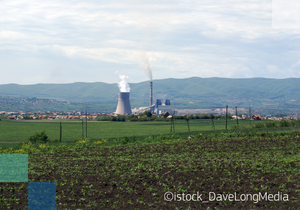 Exchange 1
Exchange 1Target areas:
Kosovo coal basin, Kosovo*
Upper Silesian coal basin, Silesian Voivodeship, Poland
In-person visit: 12-14 July 2022.
Topics in focus: regional and local transition strategies; repurposing of post-mining/post-industrial areas; transformation challenges of coal-based enterprises in mining and utility sectors; knowledge creation and partnerships for change.
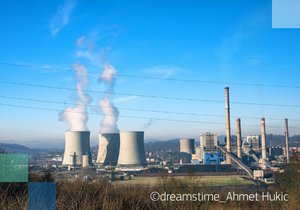 Exchange 2
Exchange 2Target areas:
Municipalities of Lukavac, Živinice and Banovići, Bosnia and Herzegovina
Ústí region, Czechia
In-person visits: 21-23 June, 7-9 November 2022.
Topics in focus: rehabilitation and repurposing of mining sites; renewables and alternative energy solutions; economic diversification; just transition governance.
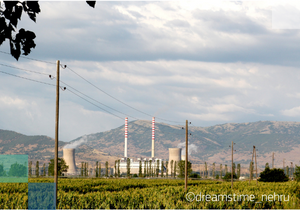 Exchange 3
Exchange 3Target areas:
Municipalities of Bitola, Novaci and Kičevo, North Macedonia
Region of Western Macedonia, Greece
In-person visits: 6-8 July, 12-14 October 2022.
Topics in focus: strategy development; repurposing of mining sites; alternative energy solutions; smart agriculture for economy diversification and job security; communicating the transition.
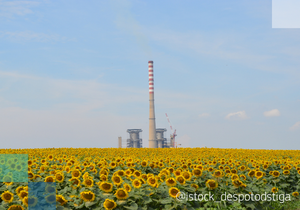 Exchange 4
Exchange 4Target areas:
Kolubara and Kostolac districts, Serbia
Jiu Valley region, Romania
In-person visit: 19-21 April 2023.
Topics in focus: reskilling workers and employment creation; social dialogue, partnership, and participation; strategic project development.
 Exchange 5
Exchange 5Target areas:
Municipalities of Kakanj and Breza, Bosnia and Herzegovina
District of Stara Zagora, Bulgaria
In-person visit: 29-30 May 2023.
Topics in focus: land and infrastructure repurposing; reskilling workers and employment creation; responsive governance.
 Exchange 6
Exchange 6Target areas:
Municipality of Pljevlja, Montenegro
Municipality of Velenje, Slovenia
In-person visits: 14-16 March and 19-21 September 2023.
Topics in focus: local transition planning and stakeholder engagement; energy efficiency; land and infrastructure repurposing.
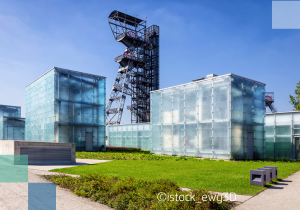 Exchange 7
Exchange 7Target areas:
Novovolynsk, Lytovezh, Poromiv, and Chervonohrad communities, Ukraine
Małopolska and Silesia Voivodeships, Poland
In-person visit: 4-6 July 2023.
Topics in focus: economic development and job creation; land rehabilitation and infrastructure repurposing; strategy development and financing opportunities.
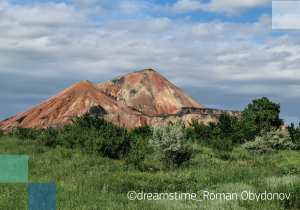 Exchange 8
Exchange 8Target areas:
Donetsk region communities, Ukraine
Municipality of Saerbeck, Ruhr Metropolis, Germany
In-person visit: 12-14 September 2023.
Potential topics: transition governance, stakeholder engagement, district heating, integrated brownfield development, mine closure.
Timeline and results
Although all exchanges featured 1 or 2 in-person visits, regions truly solidified their relationships with eachother through interactions and discussions leading up to and following those visits. These relationships have led to fruitful cooperation even beyond the programme.
Exchanges 1, 2 and 3 took place in 2022. Their initial in-person visits took place in June-July, and the reciprocal visits happened in October-November. Packed agendas allowed participants to make the most of each other’s experience in working towards a just transition and the visits were a big success. Most importantly, they allowed for a joint reflection by participants from the Western Balkans and the EU on the crucial importance of a holistic and strategic approach when preparing for a transition. The visits thus became a powerful source of motivation and provided the practical knowledge needed to ensure a just transition.
The 2023 exchanges kicked off in March with a visit of stakeholders from Velenje to Pljevlja (exchange 6), and this was reciprocated in September. In-person visits in exchanges 4, 5, 7 and 8 took place in April, May, July and September 2023, respectively. Participants gathered valuable insights, met relevant stakeholders, and outlined possibilities for cooperation beyond the exchange programme.
Get an insight into the exchanges
To learn more about how the regions in the Western Balkans, Ukraine and the EU are working together towards a just transition, watch these videos featuring
- the visit of stakeholders from Kosovo to Silesia in Poland (exchange 1)
- the visit to Lukavac, Banovići and Živinice in Bosnia and Herzegovina by the delegation of the Usti region from Czechia (exchange 2)
- the visit of Bitola, Novaci and Kičevo representatives from North Macedonia to the Western Macedonia region in Greece (exchange 3)
- the visit of Kakanj and Breza delegates from Bosnia and Herzegovina to exchange with stakeholders in the Stara Zagora region in Bulgaria (exchange 5)
- the visit to Velenje in Slovenia by the Pljevlja delegation from Montenegro (exchange 6)
- the visits of stakeholders from Novovolynsk, Lytovezh, Poromiv, and Chervonohrad in Ukraine to Małopolska and Silesia in Poland (exchange 7)
Check out the Coal regions exchange programme’s past newsletters to learn more about regional delegations, participating stakeholders and agendas for in-person visits that took place during
- June–July 2022 (exchanges 1–3)
- October 2022–March 2023 (exchanges 2, 3 and 6)
- April–July 2023 (exchanges 4, 5 and 7)
- September 2023 (exchanges 6 and 8).
Selection process details
Applications for the coal regions exchange programme was open from June to September 2021.
The 32 submitted applications speak to the active interest from the side of coal regions, with a very good geographic spread of applicants.
The applications were carefully evaluated by the initiative secretariat’s team of experts, and their assessments were further peer-reviewed. The best-scored applications were selected for participation in the programme. Based on the exact needs, interest and experiences of the selected applicants, the secretariat developed suggestions for match-making among delegations. These suggestions were further discussed with the selected applicants. In some cases, the evaluators highlighted complementarity among delegations and suggested they join forces, with one being a focal delegation and the other being a contributing delegation. After consolidating feedback of all involved parties, the above-presented sets of delegations were confirmed.
Coal regions in Bosnia and Herzegovina, Kosovo, Montenegro, North Macedonia, Serbia, Ukraine and the EU can participate in the exchange programme.
To join the programme, interested participants were invited to apply by 30 September 2021 by following 3 steps described below.
- Form a group of region representatives (a “delegation”) that fits the following criteria
- is led by a public authority from the coal region or by a suitable local entity (such as energy company, trade union, NGO, research institution) that submits a letter of support from a public authority in their region
- engages other relevant stakeholders, including from industry, labour groups, civil society organisations, academia
- consists of up to 7 representatives of the region
- demonstrates gender balance within the delegation
- Fill out a suitable application form from provided below (section “Documents and resources”)
- Submit their applications as PDF documents to the initiative’s secretariat via email: exchangeWBUA
 coalregions [dot] eu (exchangeWBUA[at]coalregions[dot]eu).
coalregions [dot] eu (exchangeWBUA[at]coalregions[dot]eu).
For applying and participating in the exchanges, some of applicants' personal data was required. Read the privacy statement for details here.
Priority will be given to pairs made up of one coal region from the Western Balkans and Ukraine and one from the EU. However, the programme is flexible and needs-based, so alternative figurations are also possible, for example
- a pair that consist of 2 regions from the Western Balkans and Ukraine
- EU regions that are frontrunners in smart specialisation or renewable energy to join and share their innovations
- various entities (such as public authority, energy company, trade union, NGO, research institution) to apply
The length of the exchange will depend on the needs and capacities of participating regions and available resources.
| Duration of exchange (indicative) | Number of meetings | Number of topics covered |
Long-term exchange | 1 year | Two meetings, 2-3 days each (hosted by each region in the pair) | Up to 4 |
Medium-term exchange | 3-6 months | One meeting, 2-3 days (hosted by one of the regions in the pair) | 1-3 |
Short-term exchange | 3-4 months | One meeting, 1 day (hosted back-to-back with a related event) | 1 |
Depending on the interest and needs of participating regions, topics will be selected to be explored in-depth. For example, they might include
- closing and repurposing coal-related sites and infrastructure
- designing an effective governance model to support a transition process in a region
- developing of an engagement strategy and setting up a series of transition dialogues
- conceptualising economic diversification for a coal region as a means for long-term job creation
The exchange in each pair will be guided by a facilitator from the initiative’s secretariat. Together with the regions, the facilitator will help define the focus of the exchange, objectives, key challenges, areas for which expert input is needed, as well as collaboratively develop agendas of meetings. Several experts will contribute to each exchange by sharing their knowledge on the topics selected by the regions.
The exchange programme is resourced to finance the region-to-region exchange including travel and accommodation of up to 7 representatives per participating region. No other activities are funded as part of the programme.
For further details about the coal region-to-region exchanges: exchangeWBUA coalregions [dot] eu (exchangeWBUA[at]coalregions[dot]eu)
coalregions [dot] eu (exchangeWBUA[at]coalregions[dot]eu)
Exchange programme benefits
To enable a direct and beneficial exchange, participating regions were paired based on their interests and expertise.
As part of the programme, they benefitted from study visits, knowledge exchange, expert support, and other opportunities to share experiences.
Participating regions from the Western Balkans and Ukraine got tailored and specific input from experts supporting the exchanges. They also accessed advice from their EU pairs, as the EU regions shared their specific knowledge and good practices through hands-on learning opportunities offered within study visits.
Participating EU coal regions had the opportunity to reflect on their transition so far. Guided by expert input, they evaluated their own work with a view to map out next steps. The experts also gave further input on how the EU coal regions could achieve the identified steps and speed up their local just transitions.
The programme was also a networking opportunity, as the participants could access a network of regions from the Western Balkans, Ukraine, and the EU, as well as interact with the European Commission and the 6 other international organisations leading the initiative.
